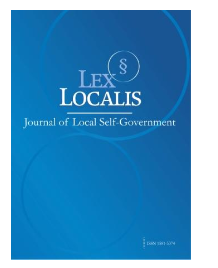WHAT DRIVES FINANCIAL MANAGEMENT IN INDONESIAN STATE UNIVERSITIES WITH LEGAL ENTITY STATUS (PTN BH)? EVIDENCE FROM INTERNAL OVERSIGHT UNITS
DOI:
https://doi.org/10.52152/801827Keywords:
Financial Management Performance, Internal Audit, Ethical Culture, Top Management Commitment, PTN BHAbstract
This study examines the determinants of financial management performance in Indonesian State Universities with Legal Entity Status (PTN BH), focusing on internal control effectiveness, internal audit quality, auditor-auditee relationships, strategic planning, clarity of mission, and organizational ethical culture, with top management commitment as a moderating factor. Using a quantitative survey of Internal Audit Units (SPI) across all PTN BH, data were analyzed through PLS-SEM. Results show that audit quality, auditor-auditee relationships, strategic planning, mission clarity, and ethical culture significantly improve financial management performance, while internal control has no direct effect. Top management commitment strengthens the impact of audit quality, relationships, and ethical culture but is insignificant for other variables. Theoretically, the study integrates Institutional Theory, the COSO Framework, Goal Setting Theory, and Attribution Theory in public higher education governance. Practically, it highlights strengthening SPI, fostering ethical culture, implementing strategic planning, and ensuring management support to achieve accountability and sustainability in PTN BH financial management.
Downloads
Published
Issue
Section
License
Copyright (c) 2025 Lex localis - Journal of Local Self-Government

This work is licensed under a Creative Commons Attribution-NonCommercial-NoDerivatives 4.0 International License.








